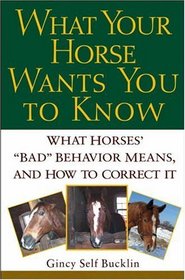Rhonda W. (smoky) reviewed What Your Horse Wants You to Know : What Horses' "Bad" Behavior Means, and How to Correct It on + 228 more book reviews
Helpful Score: 1
Very good to the point training tips on how to get along with your horse.




